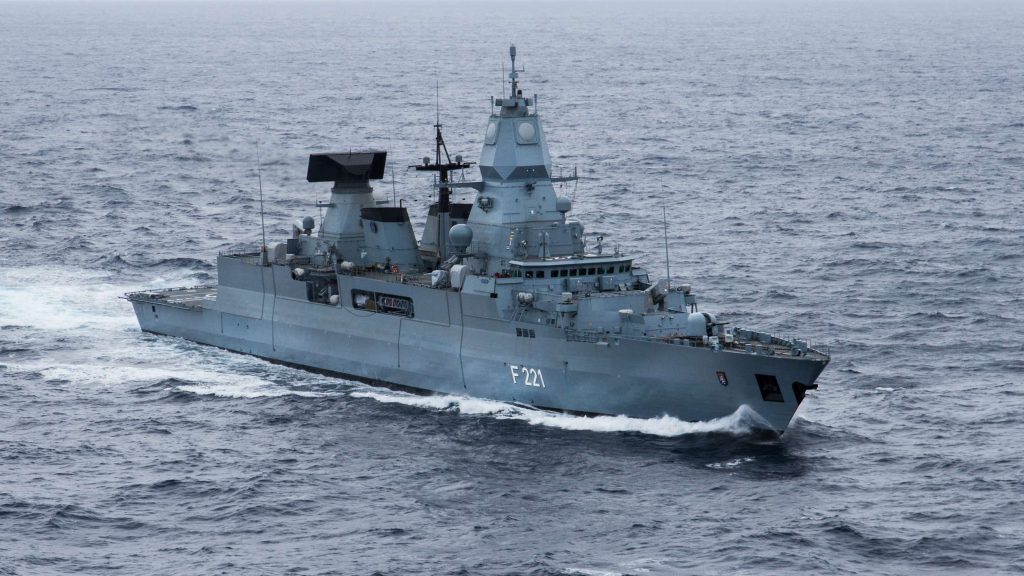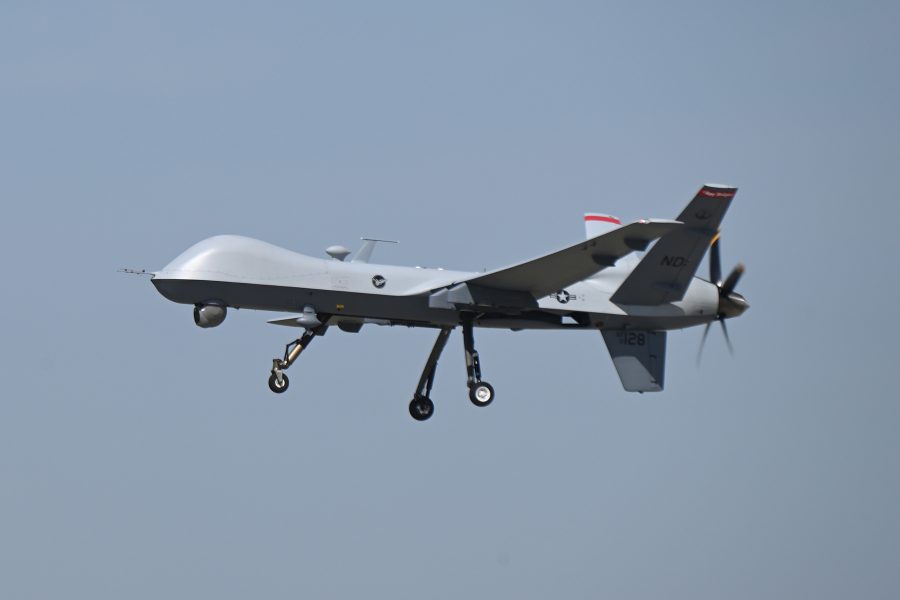A U.S. Air Force MQ-9 Reaper came close to being shot down by a German warship in a friendly fire incident over the Red Sea on Feb. 27, U.S. officials told Air & Space Forces Magazine.
The USAF MQ-9 was targeted by the German frigate Hessen as the drone was conducting a mission for Operation Prosperity Guardian, the U.S.-led maritime operation that is protecting international shipping from Houthi attacks, a U.S. official said.
The German ship fired two missiles at the MQ-9, but they missed the drone. “The UAV did not receive damage and continued its mission,” according to a U.S. defense official.
The episode points to the challenges in coordinating Operating Property Guardian with the more recent European Union effort to protect shipping, Operation Aspides, which the Hessen has been supporting.
The Iran-backed Houthis have mounted more than 45 attacks against vessels in the Red Sea, Bab el-Mandeb Strait, and the Gulf of Aden since mid-November, according to the Pentagon. No military vessels have yet been damaged. But approximately 15 commercial ships—including four U.S. ships—have been “impacted,” said Maj. Pete Nguyen, a Pentagon spokesperson. Yemen’s internationally recognized government said March 2 the U.K.-owned Rubymar, a cargo ship carrying over 40,000 tons of fertilizer, sunk.
Ships and aircraft deployed to the U.S. Central Command region have been shooting down Houthi drones and missiles that threaten commercial vessels on a near daily basis. CENTCOM has also conducted strikes against Houthi military facilities in Yemen to try to preclude the Houthis from launching missiles or drones.
To support such efforts, four to eight U.S. and allied navy ships are patrolling the Red Sea at any given time, the Pentagon says. Operation Aspides consists of four frigates, according to the European Union’s Naval Force. U.S. officials have not spelled out how the U.S. coordinates and deconflicts its operations with Operation Aspides, but note that the American military has lots of experience working with allies and partners.

“As I understand it, they do coordinate and communicate on a daily basis,” Pentagon Press Secretary Air Force Maj. Gen. Patrick S. Ryder told reporters on Feb. 29.
MQ-9s have played an important role in the effort to monitor and respond to the Houthis’ missile and drone attacks. The Iran-backed Houthis have shot down two Air Force MQ-9s since November.
On Feb. 28, German Minister of Defense Boris Pistorius acknowledged there was a “situation in which a drone was shot at but missed.”
“Attempts to make contact were unsuccessful, the frigate then, consistent with the rules of engagement, then engaged,” Pistorius said. “But a successful strike did not ultimately occur.”
Pistorius did not say that the drone that was targeted was a U.S. aircraft. A German Bundeswehr Joint Forces Operations Command spokesman told Air & Space Forces Magazine they would “not provide any further operational detail.” But U.S. officials confirmed that an American MQ-9 was fired upon and added that CENTCOM was working on ways to prevent friendly fire incidents in the future.
“CENTCOM is in close coordination with the E.U. and Operation Aspides to investigate the circumstances that led to this event and to ensure safe deconfliction of airspace,” a U.S. defense official said. “Operation Prosperity Guardian and Operation Aspides continue to operate alongside each other as we continue our mission to ensure freedom of navigation.”
